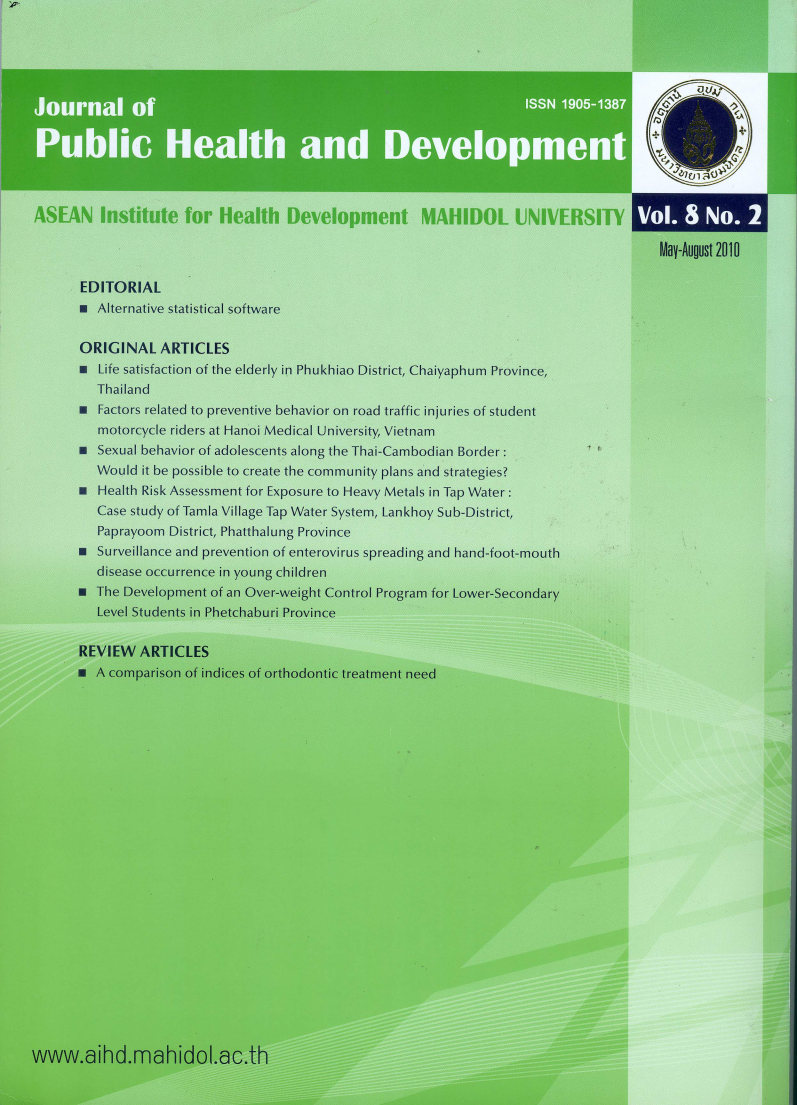Factors related to preventive behavior on road traffic injuries of student motorcycle riders at Hanoi Medical University, Vietnam
Main Article Content
Abstract
This cross-sectional descriptive study aimed to identify the factors associated with dependent variable that was preventive behavior on road traffic injuries (RTIs) of student motorcycle riders at Hanoi Medical University in Vietnam. Those factors or in dependent variables were socio-demographic factors, knowledge about RTIs, perceptions towards hazards of RTI, perceptions towards benefits of and barriers to RTI prevention, and cues to action. The sample size was 240 students who were motorcycle drivers. Data was collected using a selfadministered questionnaire. Data was analyzed using descriptive statistics with percentage, mean, standard deviation. The Chi-Square test was used to find the relationships between independent variables and the dependent variable.
Results revealed that the factors that were significantly related to the preventive behavior regarding RTIs and the Independent variables that were gender (p = 0.02), previous road traffic injuries (p=0.008), knowledge about RTI prevention (p = 0.028), perceptions towards hazards of RTIs (p = 0.011), and family members’ influence (p = 0.026).
In order to reduce road traffic injuries, the School-based Educational Program should be encouraged and the public awareness campaign should be improved by the National Traffic Safety Committee (NTSC) to be more effective. Family members were the most influential in stimulating preventive behavior of the respondents. Therefore, family leaders should provide more information about RTI prevention, discuss the hazards of RTIs, and encourage young motorcycle drivers to implement preventive behavior, especially young male motorcycle drivers.


